In 2019, former Masters student in the Department Lisa Shmulyan wrote her dissertation on the gaming of the World Bank’s Ease of Doing Business rankings. On 16 September 2021, the World Bank cancelled its Ease of Doing Business Index after an investigation discovered its manipulation. In this article, she discusses her research and thoughts on what happened, interrogating the problems and biases built into the index, including the questionable indicators used to measure countries’ ‘ease of doing business’.
In 2019, after discovering the inconsistency between the staggering improvement in Russia’s Ease of Doing Business ranking and worsening indicators of its business conditions, I knew something wasn’t adding up.
Back in 2012, Russia’s President Putin commanded his government to improve its Doing Business ranking by 100 points, and Russia nearly achieved this target: climbing from 125th in 2010 to 28th in 2019.

Over this same period, however, the number of new businesses created in Russia decreased and the number of enterprise failures increased, according to OECD data. Further, in 2015, Western sanctions and falling oil revenue put Russia into a recession.
Figure 2, Russia’s New Enterprise Creations between 2008 and 2017. Figure 3, Russia’s Enterprise Exits between 2011 and 2018.
I researched how this could happen and discovered significant pressure for nations to improve their Doing Business rank, limitations of the ranking’s methodology, and the lack of transparency at the World Bank.
On September 16th, 2021, the World Bank cancelled their Ease of Doing Business report after an investigation discovered its manipulation!
As the World Bank was amid difficult international negotiations to receive a $13 billion capital increase, senior bank management pressured staff to alter data affecting China and other nations’ rankings. China was the third-largest shareholder at the World Bank, and eager to see their rank improve.
Based on my research, here is my take on the Doing Business rankings and thoughts on what happened.
Political motivations
By ranking countries, the World Bank wanted countries to undertake reforms they considered beneficial for their business environments. However, as the rank’s international significance rose, including influencing politics, investment, and aid, countries targeted improving their Doing Business rank as a goal in itself to signal a business-friendly environment.
Countries adapted their bureaucracies to undertake reforms that would strategically improve their ranks. Over seventy nations created regulatory reform committees based on the Doing Business indicators and completed 3,847 related reforms.
Within one year of the Bank releasing ranks, many governments requested advice on improving their ranks as opposed to general regulatory advice. Many governments made statements of their intent to improve their ranks and publicized efforts when making Doing Business reforms.
For example, President Modi commanded India to improve by 100 points. Modi made improving in the Doing Business rank a part of the government’s agenda, including coordination with agencies, implementation through local governments, and creating sub-national rankings that fostered competition and pressured Indian bureaucrats to achieve this goal. He wanted India to improve its Doing Business rank to validate his administration’s success and to more easily attract investment.
In Russia, President Putin decreed that Russia was to improve its rank by 100 points and created the Agency for Strategic Initiatives to reach this goal.
Lack of transparency at the World Bank
Data underlying the Doing Business scores was not processed transparently. The data-gathering and reporting process allowed significant collaboration and input from governments and government officials who wanted their rankings to improve.
There was also criticism of frequent changes in methodology, which could be politically motivated. In 2018, Paul Romer, the Chief Economist of the World Bank, told the Wall Street Journal that the Doing Business indicators were manipulated in Chile to make its business conditions look worse under a socialist president.
Methodological limitations
The Doing Business rank was constructed by scoring countries on 10 topics, which are equally weighted. Despite topics’ equal weight, they are not equally relevant.
Between 2012 and 2019, Russia improved electricity and trading across borders, resulting in a 77 and 63 point jump, respectively, in those topics. However, in 2012, the European Bank of Reconstruction and Development’s (EBRD) BEEPS surveys showed only 2% of surveyed Russian business people cited electricity as their largest obstacle to business and only 3% cited trading across borders. Although these topic improvements significantly improved Russia’s rank, they wouldn’t have significantly improved the business environment, considering relatively few cited either as a large obstacle.
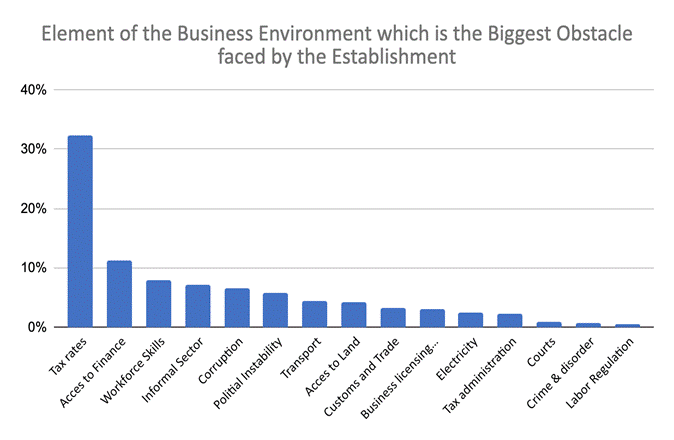
There are also areas outside the scope of the Doing Business rank that are more significant to business conditions. According to the EBRD BEEPs surveys, the top five obstacles for surveyed Russian business people were consistently tax rates, access to finance, workforce skills, corruption, and political instability. However, workforce skills, corruption, and political instability were not covered by these rankings, despite being dire local constraints.
Further, the rank is based on data from one or two of the largest business cities in the nation. However, the business environment is heterogeneous throughout the country. The table below shows the variation in top three challenges to business by region in Russia according to EBRD BEEPS surveys.
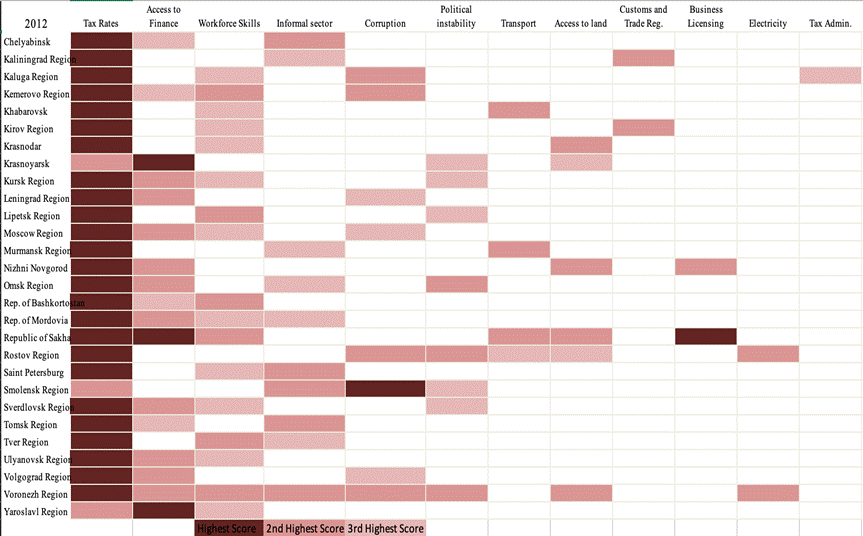
Concluding thoughts
International pressure on China and other nations to improve their Doing Business ranks coupled with the lack of transparency at the World Bank and its internal politics led to the rank’s explicit manipulation.
In addition, the rank had negative implications for decades. Despite its lack of ubiquitous relevance, due its strong international influence, nations shifted their priorities to selectively target policies improving their ranks. It served as a tool for them to improve optics. Meanwhile, it distracted nations from undertaking more worthwhile policies to improve their business environments.
The views expressed in this post are those of the author and in no way reflect those of the International Development LSE blog or the London School of Economics and Political Science.
Photo: ГУМ shopping centre in Moscow, Russia, 2016. Credit: kuhnmi on Flickr.


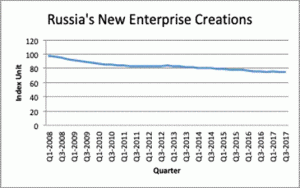
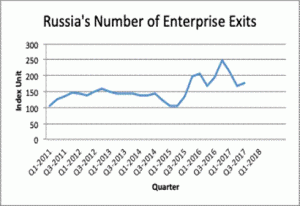
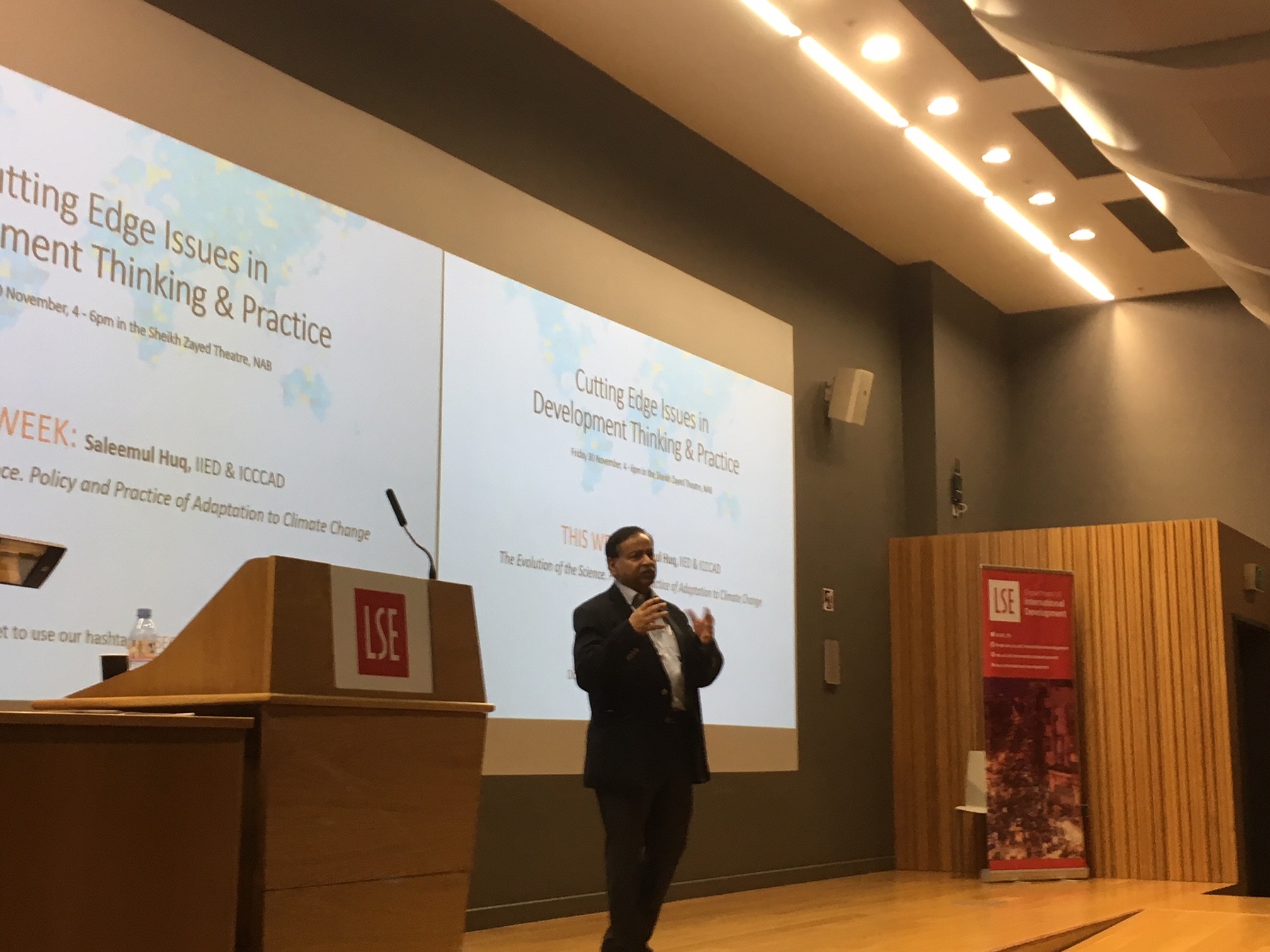



WOW just what I was searching for. Came here by
searching for business